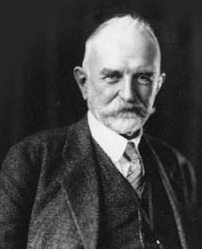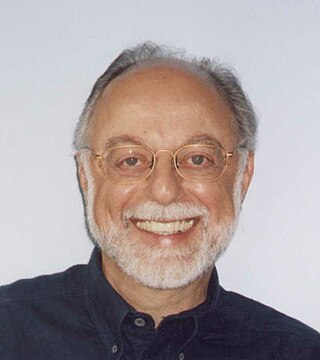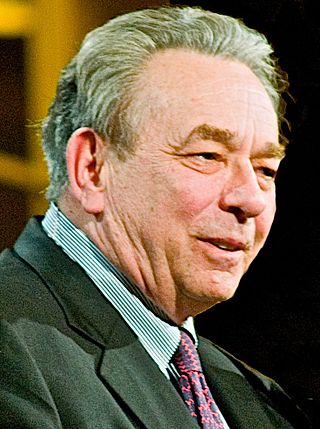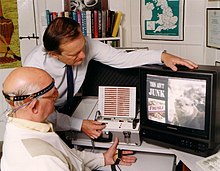
Cognitive science is the interdisciplinary, scientific study of the mind and its processes with input from linguistics, psychology, neuroscience, philosophy, computer science/artificial intelligence, and anthropology. It examines the nature, the tasks, and the functions of cognition. Cognitive scientists study intelligence and behavior, with a focus on how nervous systems represent, process, and transform information. Mental faculties of concern to cognitive scientists include language, perception, memory, attention, reasoning, and emotion; to understand these faculties, cognitive scientists borrow from fields such as linguistics, psychology, artificial intelligence, philosophy, neuroscience, and anthropology. The typical analysis of cognitive science spans many levels of organization, from learning and decision to logic and planning; from neural circuitry to modular brain organization. One of the fundamental concepts of cognitive science is that "thinking can best be understood in terms of representational structures in the mind and computational procedures that operate on those structures."

Daniel Clement Dennett III is an American philosopher, writer, and cognitive scientist whose research centers on the philosophy of mind, philosophy of science, and philosophy of biology, particularly as those fields relate to evolutionary biology and cognitive science.
Evolutionary psychology is a theoretical approach in psychology that examines cognition and behavior from a modern evolutionary perspective. It seeks to identify human psychological adaptations with regards to the ancestral problems they evolved to solve. In this framework, psychological traits and mechanisms are either functional products of natural and sexual selection or non-adaptive by-products of other adaptive traits.

George Philip Lakoff is an American cognitive linguist and philosopher, best known for his thesis that people's lives are significantly influenced by the conceptual metaphors they use to explain complex phenomena.

James Clayton Dobson Jr. (born April 21, 1936) is an American evangelical Christian author, psychologist, and founder of Focus on the Family (FotF), which he led from 1977 until 2010. In the 1980s he was ranked as one of the most influential spokesmen for conservative social positions in American public life. Although never an ordained minister, he was called "the nation's most influential evangelical leader" by The New York Times while Slate portrayed him as a successor to evangelical leaders Jerry Falwell and Pat Robertson.

William James was an American philosopher, psychologist, and the first educator to offer a psychology course in the United States. James is considered to be a leading thinker of the late 19th century, one of the most influential philosophers of the United States, and the "Father of American psychology."

Pragmatism is a philosophical tradition that views language and thought as tools for prediction, problem solving, and action, rather than describing, representing, or mirroring reality. Pragmatists contend that most philosophical topics—such as the nature of knowledge, language, concepts, meaning, belief, and science—are all best viewed in terms of their practical uses and successes.
Introspection is the examination of one's own conscious thoughts and feelings. In psychology, the process of introspection relies on the observation of one's mental state, while in a spiritual context it may refer to the examination of one's soul. Introspection is closely related to human self-reflection and self-discovery and is contrasted with external observation.

George Herbert Mead was an American philosopher, sociologist, and psychologist, primarily affiliated with the University of Chicago. He was one of the key figures in the development of pragmatism. He is regarded as one of the founders of symbolic interactionism, and was an important influence on what has come to be referred to as the Chicago School of Sociology.
Eliminative materialism is a materialist position in the philosophy of mind. It is the idea that the majority of mental states in folk psychology do not exist. Some supporters of eliminativism argue that no coherent neural basis will be found for many everyday psychological concepts such as belief or desire, since they are poorly defined. The argument is that psychological concepts of behavior and experience should be judged by how well they reduce to the biological level. Other versions entail the nonexistence of conscious mental states such as pain and visual perceptions.

Arthur Owen Barfield was a British philosopher, author, poet, critic, and member of the Inklings.

Fred Alan Wolf is an American theoretical physicist specializing in quantum physics and the relationship between physics and consciousness. He is a former physics professor at San Diego State University, and has helped to popularize science on the Discovery Channel. He is the author of a number of physics-themed books including Taking the Quantum Leap (1981), The Dreaming Universe (1994), Mind into Matter (2000), and Time Loops and Space Twists (2011).

Robert Charles Sproul was an American Reformed theologian and ordained pastor in the Presbyterian Church in America. He was the founder and chairman of Ligonier Ministries and could be heard daily on the Renewing Your Mind radio broadcast in the United States and internationally. Under Sproul's direction, Ligonier Ministries produced the Ligonier Statement on Biblical Inerrancy, which would eventually grow into the 1978 Chicago Statement on Biblical Inerrancy. Along with Norman Geisler, Sproul was one of the chief architects of the statement. Sproul has been described as "the greatest and most influential proponent of the recovery of Reformed theology in the last century."
Modal realism is the view propounded by philosopher David Lewis that all possible worlds are real in the same way as is the actual world: they are "of a kind with this world of ours." It is based on four tenets: possible worlds exist, possible worlds are not different in kind from the actual world, possible worlds are irreducible entities, and the term actual in actual world is indexical, i.e. any subject can declare their world to be the actual one, much as they label the place they are "here" and the time they are "now".

Emily Sue Savage-Rumbaugh is a psychologist and primatologist most known for her work with two bonobos, Kanzi and Panbanisha, investigating their linguistic and cognitive abilities using lexigrams and computer-based keyboards. Originally based at Georgia State University's Language Research Center in Atlanta, Georgia, she worked at the Iowa Primate Learning Sanctuary in Des Moines, Iowa from 2006 until her departure in November 2013. She currently sits on the Board of Directors of Bonobo Hope.
The law of attraction is the New Thought spiritual belief that positive or negative thoughts bring positive or negative experiences into a person's life. The belief is based on the idea that people and their thoughts are made from "pure energy" and that like energy can attract like energy, thereby allowing people to improve their health, wealth, or personal relationships. There is no empirical scientific evidence supporting the law of attraction, and it is widely considered to be pseudoscience or religion couched in scientific language.
Philosophy of mind is a branch of philosophy that studies the ontology and nature of the mind and its relationship with the body. The mind–body problem is a paradigmatic issue in philosophy of mind, although a number of other issues are addressed, such as the hard problem of consciousness and the nature of particular mental states. Aspects of the mind that are studied include mental events, mental functions, mental properties, consciousness and its neural correlates, the ontology of the mind, the nature of cognition and of thought, and the relationship of the mind to the body.
Haim G. Ginott was a school teacher, a child psychologist and psychotherapist and a parent educator. He pioneered techniques for conversing with children that are still taught today. His book, Between Parent and Child, stayed on the best seller list for over a year and is still popular today. This book sets out to give "specific advice derived from basic communication principles that will guide parents in living with children in mutual respect and dignity."

In philosophy of mind, qualia are defined as instances of subjective, conscious experience. The term qualia derives from the Latin neuter plural form (qualia) of the Latin adjective quālis meaning "of what sort" or "of what kind" in relation to a specific instance, such as "what it is like to taste a specific apple — this particular apple now".
Geoffrey Beattie is a British psychologist, author and broadcaster. He is Professor of Psychology at Edge Hill University and in 2023 was appointed Visiting Scholar at the Oxford Centre for Life-Writing (OCLW) and Wolfson College, University of Oxford. He has also been visiting professor at the Bren School of Environmental Science and Management, University of California Santa Barbara. He graduated with a First Class Honours degree from the University of Birmingham and a PhD from Trinity College, Cambridge. He is a Fellow of the British Psychological Society, a Fellow of the Royal Society of Medicine and a Fellow of the Royal Society of Arts.












